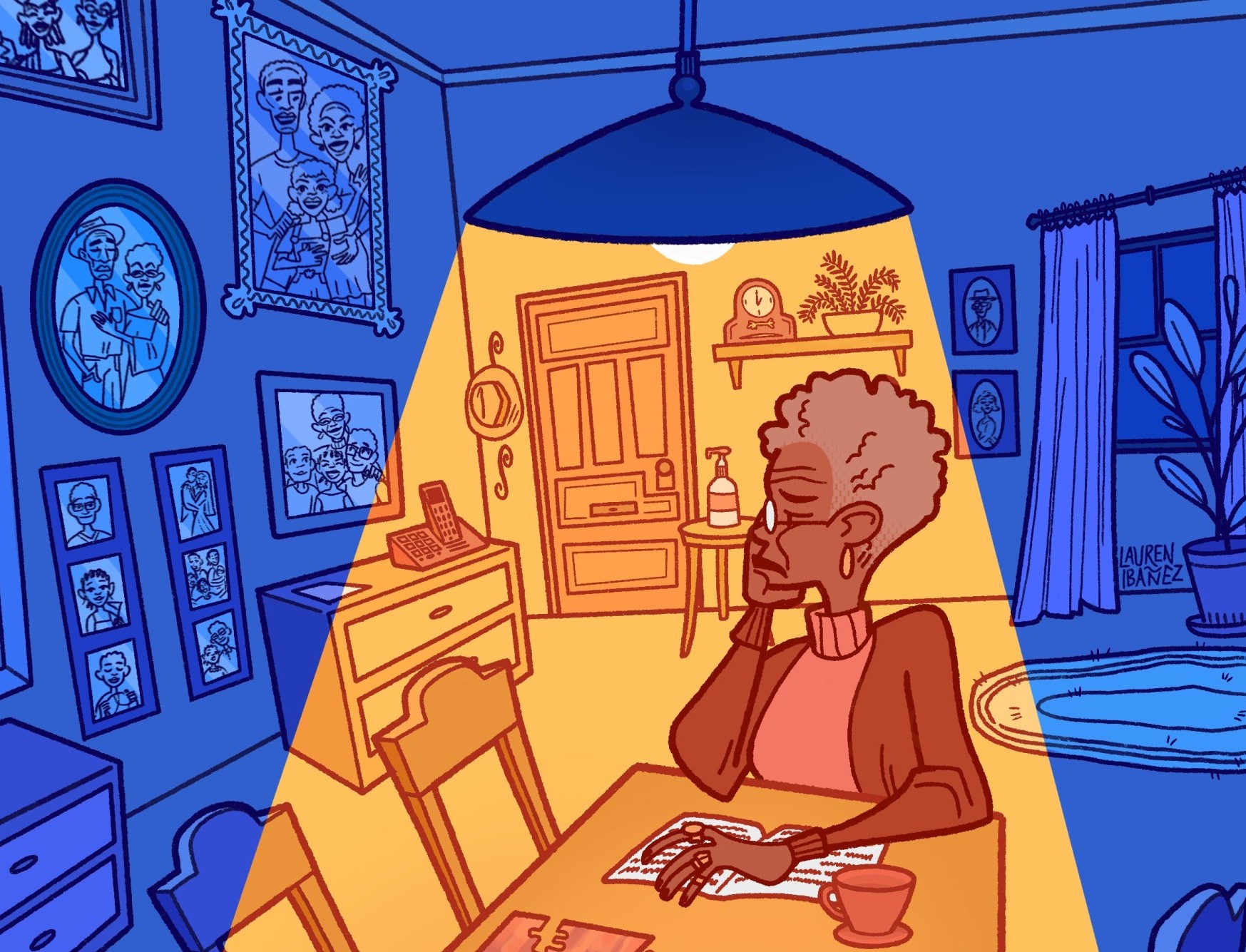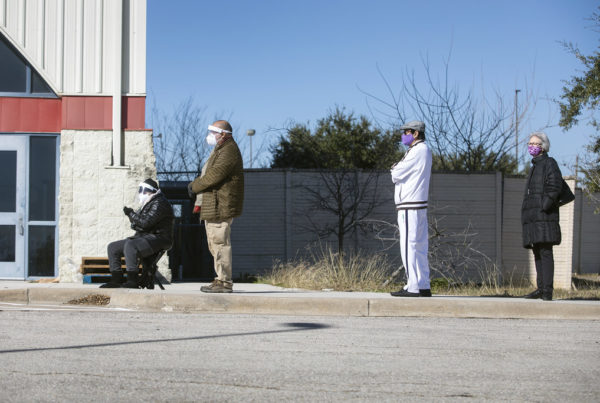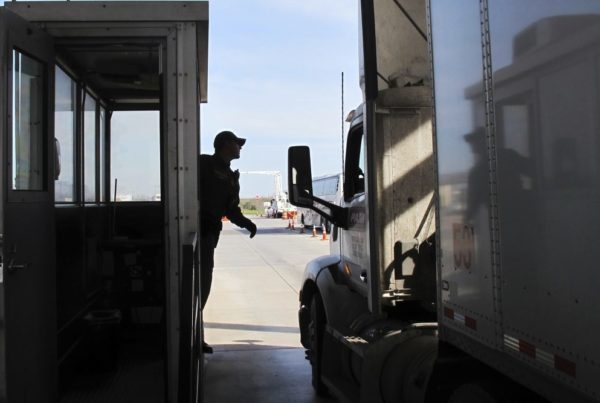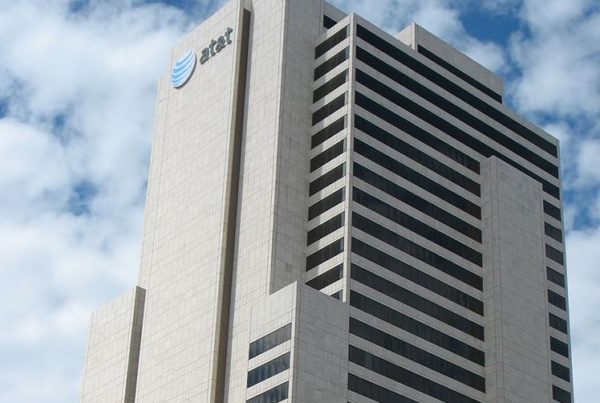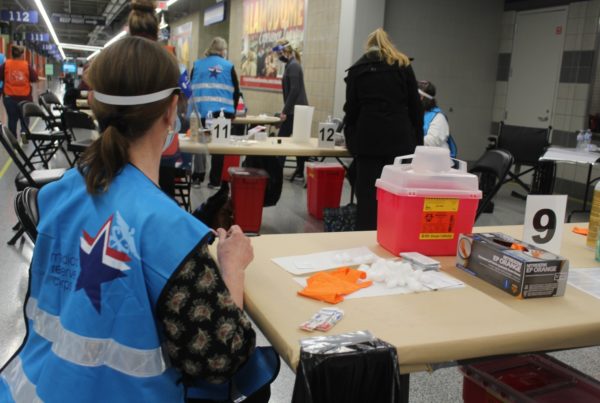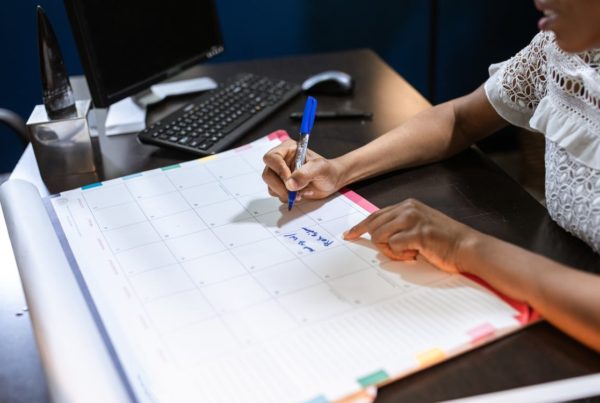The Dell Medical School at UT Austin and Meals on Wheels of Central Texas have been testing out a program that could help combat the health effects of loneliness and isolation, particularly among older people.
Volunteers call older adults who are homebound and often isolated in their daily lives just to get them to talk about themselves. How often someone gets one of these “sunshine calls” depends on the person.
Volunteer Dee Dee Diaz recently checked in on Earl, a man in his late 70s. They hadn’t talked in a bit, so there was a lot to catch up on.
One of Earl’s granddaughters recently got married, he tells her. Another granddaughter had a baby who was born a little early. Earl also talks about a small medical procedure he recently had; it went well.
The conversation then turns to weather. It’s getting colder, so the leaves from the trees around his yard are starting to fall. Earl tells Dee Dee about that, too.
“I’ve got an ash tree, so I’ve been dealing with it,” he says. “Then the backyard neighbor’s trees, they go in my yard.”
The phone call is like any conversation you’d hear between friends – except it’s a little more one-sided.
Mini Kahlon, executive director of Factor Health at Dell Medical School, says the calls are designed to be centered on people like Earl. They’re focused on what’s happening in his life, what he’s thinking about, what his days are like.
“The focus is really about making the person on the other end feel that it is a time of their own,” she says, “that it is a time of their priorities, their choices, their interests.”
Kahlon says the program uses empathy as a sort of medical intervention for people facing loneliness and isolation. She says these simple conversations can eventually – hopefully – have a big effect on how people feel about their own lives.
“And in that way make them feel – for that moment and hopefully it carries forward – that their past matters, their present matters, and what they feel about the future matters,” she says.
“It’s not uncommon for many of our clients, if they didn’t have a daily visit from a Meals on Wheels volunteer, they wouldn’t see anyone else,” he says.
The pandemic has just been an X-ray on the depression and anxiety isolation causes, he says; everyone can see it a little clearer now.
“I guess you can say this is one of the good things to come out of the pandemic is that people are starting to realize that older adults have very complex and significant needs,” he says.
And Kahlon says those needs have become greater and more urgent during the pandemic. So far, the program served more than a 100 people in its first round of calls this year.
“There is absolutely no question that with COVID and the increased isolation of folks, the interest in loneliness has ratcheted up,” she says. “No question about it.”
That’s why Dell Med has begun studying the program.
Researchers gathered data from people who received these sunshine calls between July and September. They asked questions aimed at measuring whether they felt less isolated, less left out and like they had companionship in their lives after getting the calls.
Kahlon says if researchers can prove the calls make measurable differences, they could be a useful weapon in the fight against loneliness.
“It’s one of several potential solutions that will then be available to folks as they think about how to intervene,” she says. “Not just screen for and recognize that the issue exists.”
Researchers are working to get the results of the study published as soon as possible, so other organizations can replicate the program elsewhere.
Hauser says it’s more important than ever for people to look at loneliness as a major public health issue. He says isolation can affect someone’s physical health, as well as their emotional health.
“Loneliness and depression and feelings of isolation, in our view, are viruses just like COVID,” he says, “and can have just as devastating health impacts, particularly on seniors and older adults.”
Got a tip? Email Ashley Lopez at alopez@kut.org. Follow her on Twitter @AshLopezRadio.


